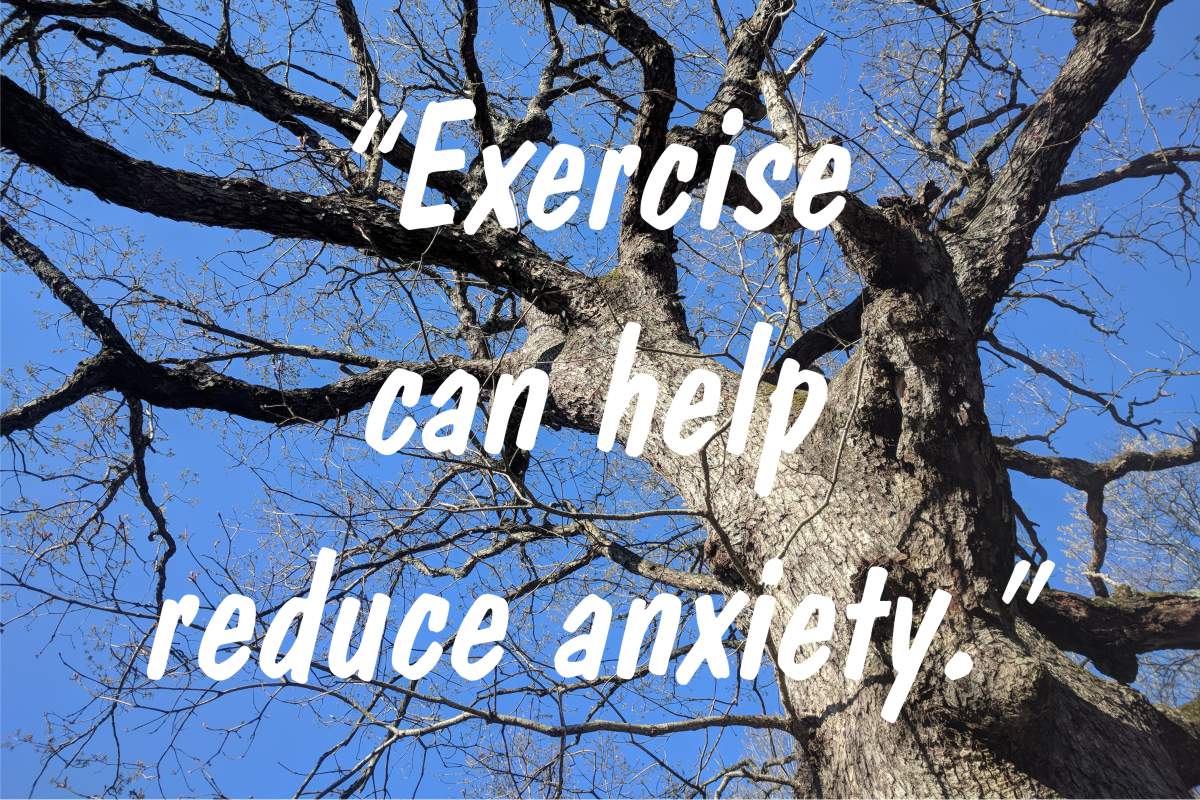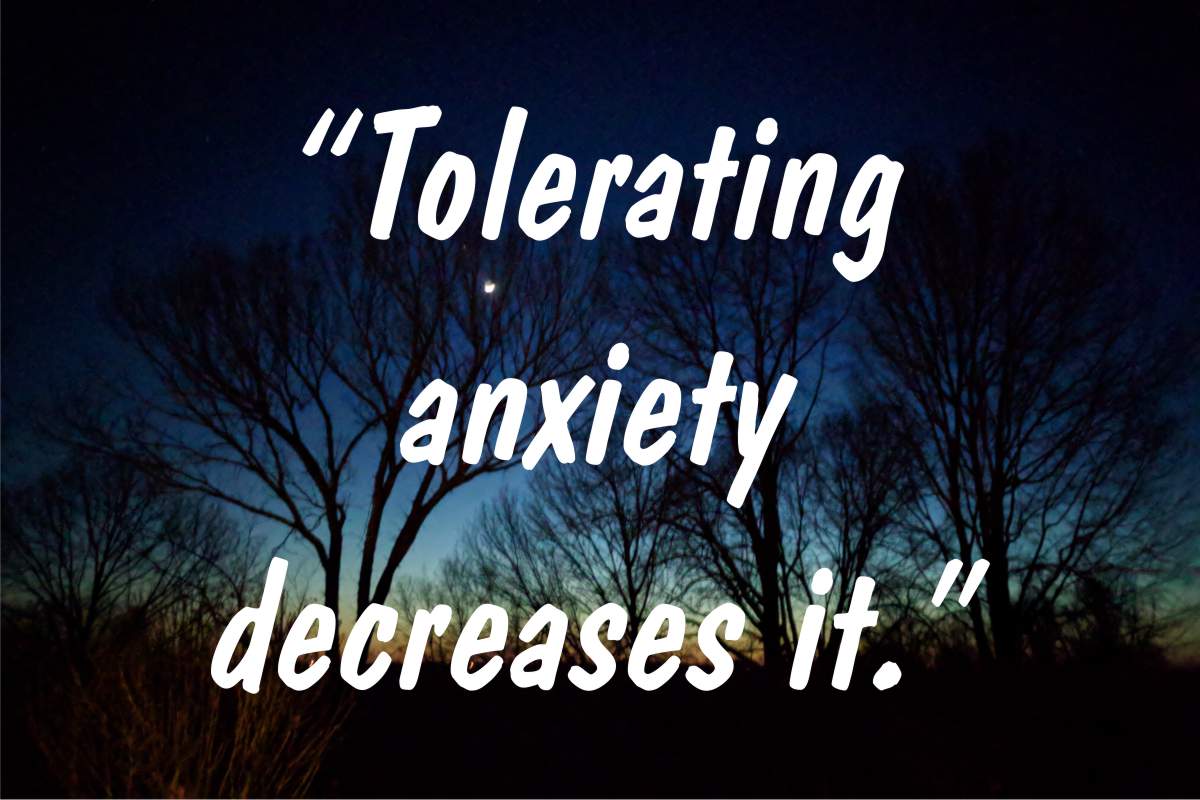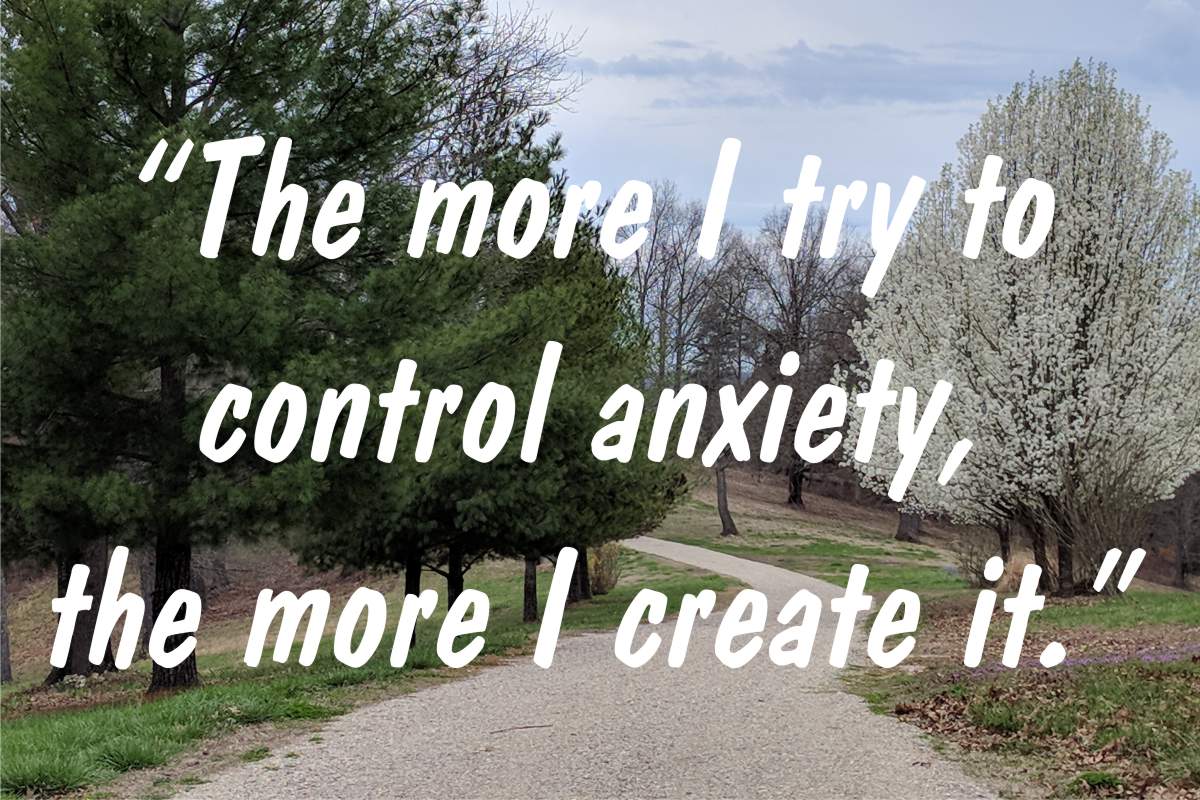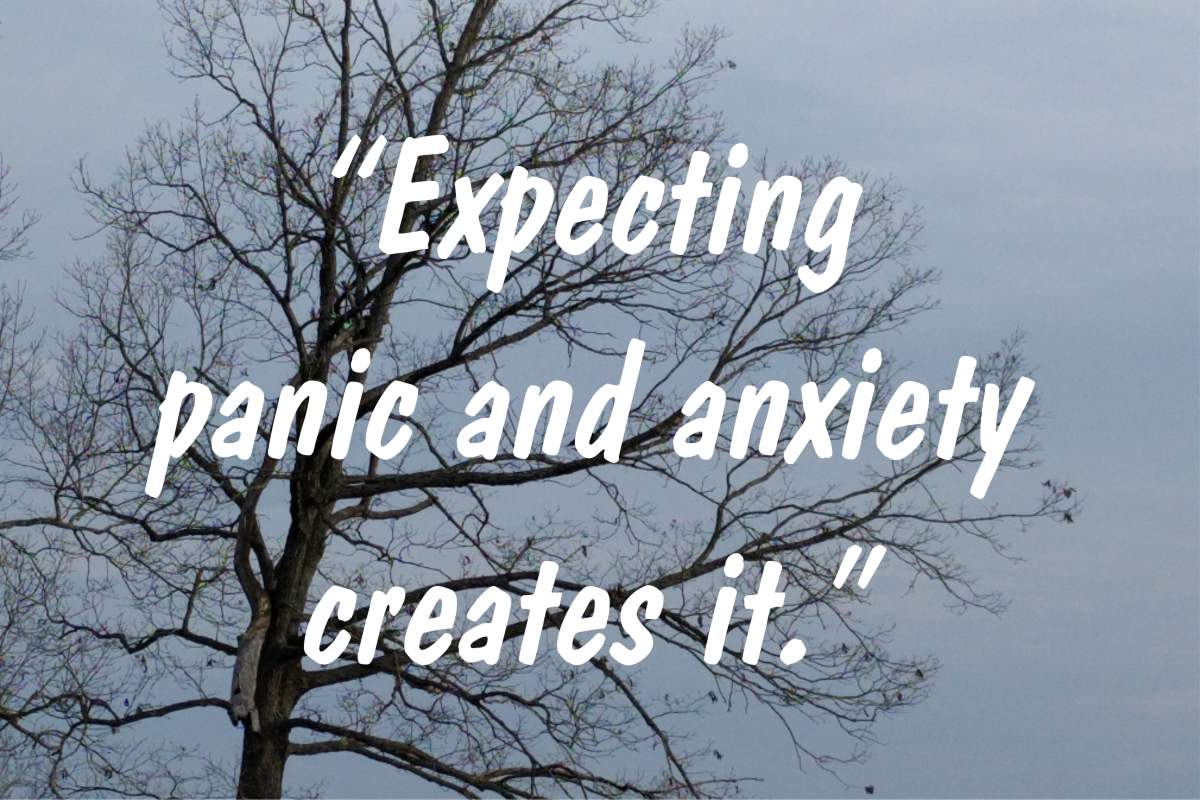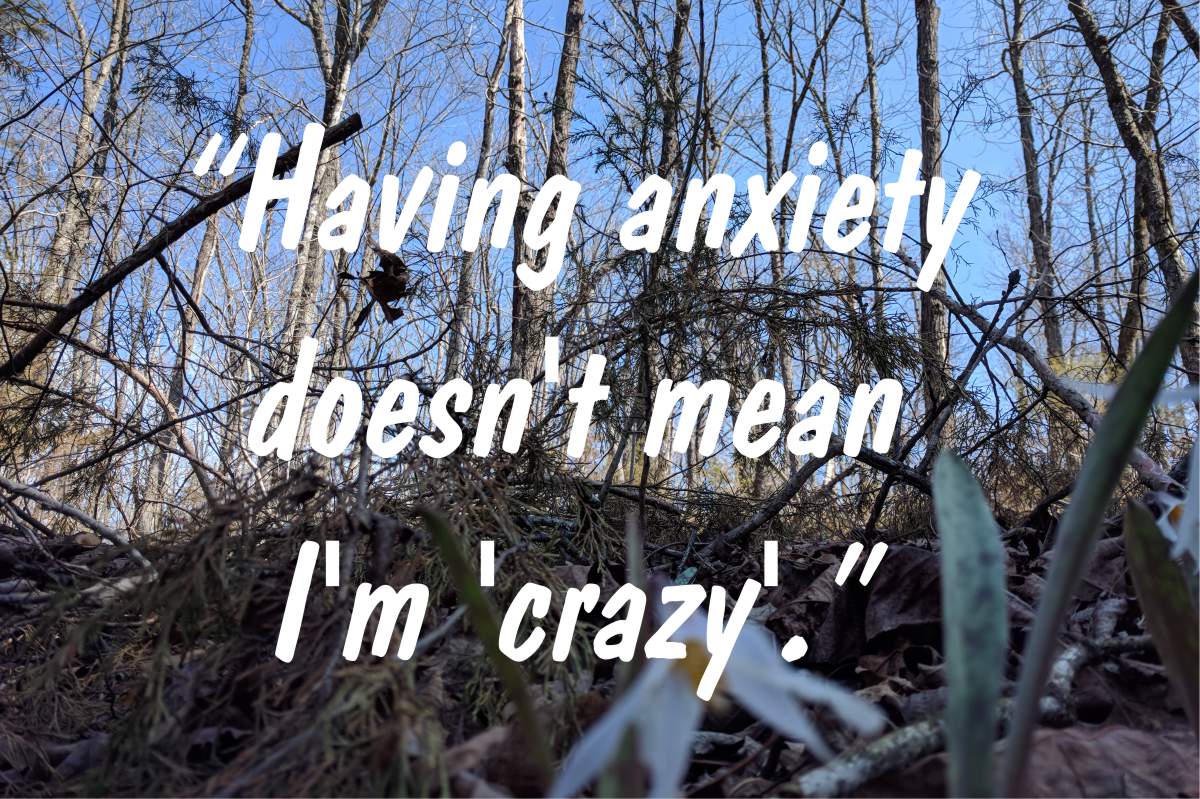










Popular Articles
Crazy-Makers: Dealing with Passive-Aggressive People
Why Are People Mean? Don't Take It Personally!
Struggling to Forgive: An Inability to Grieve
The Secret of Happiness: Let It Find You (But Make the Effort)
20 Steps to Better Self-Esteem
7 Rules and 8 Methods for Responding to Passive-aggressive People
What to Do When Your Jealousy Threatens to Destroy Your Marriage
Guide to How to Set Achieveable Goals
Catastrophe? Or Inconvenience?
Popular Audios
Audio Version of Article: Crazy-Makers: Passive-Aggressive People
Audio Version of Article: Why Are People Mean? Don't Take It Personally!
PsychNotes April 2018
by Monica A. Frank, Ph.D.
Clinical and Sport Psychologist

Index
Previous
Next
15 Coping Statements for Panic and Anxiety
Coping statement #14: “Exercise can help reduce anxiety.”
Some people are fearful of exercising because the physiological sensations during exercise (rapid heart beat, rapid breathing, muscle tension) feel very similar to anxiety and panic symptoms. For some, they don't want to feel these sensations at all because of an aversion to the symptoms. They try to avoid anything remotely similar to anxiety.
Others are fearful that having the sensations from exercise could trigger a panic attack. Unfortunately, they often prove themselves true but not for the reason they believe. The sensations during exercise don't cause panic but the excessive worry and focus on the sensations can lead to high anxiety or panic. And then, because they have a panic attack during exercise they come to believe the cause was the exercise.
As a result, some people with anxiety avoid exercise, particularly aerobic exercise which could benefit them in several ways: Read more...

15 Coping Statements for Panic and Anxiety
Coping statement #13: “Tolerating anxiety decreases it.”
The number one attitude most of my clients have towards anxiety is “I can't stand this! Tell me how to get rid of it!” Then, they think I'm crazy when I tell them, “I can't do that. But I can teach you how to tolerate it.” The last thing in the world they want to hear is they need to learn how to tolerate it: “But I am tolerating it! I have to put up with it every day!”
The concept of tolerating anxiety is frequently misunderstood initially but I would probably be even more misunderstood if I said, “You need to become friends with your anxiety.” If you have read the previous coping statements, a common theme is that the more you focus on anxiety and the more you try to get rid of it or control it, the worse it becomes. So, what is the opposite of that? Accepting the anxiety, listening to it and learning to understand its role and purpose is part of developing a normal relationship with the anxiety.
Think of it like the relationships you have with people. Have you ever met someone you can't stand to be near? Yet, if you take the time to know the person and have compassion for how that person came to be the way s/he is, you find yourself more able to tolerate the annoying behavior? Maybe even able to accept the “quirks” and like the person for other characteristics? Read more...

15 Coping Statements for Panic and Anxiety
Coping statement #12: “The more I try to control anxiety, the more I create it.”
Trying to be in control can create anxiety. In karate I was taught that the best state for a response is a relaxed state. The more a person tried to control a response the less they were able to do it. In sports this is often known as “flow” or “being in the zone.” The same is true of anxiety. The more you try to control it the worse it becomes because control itself is tension. Tension, then, adds to the other symptoms of anxiety.
Reasons control creates anxiety and what to do:
1) Relaxation-induced anxiety. Sometimes when my clients were learning to manage anxiety, they tried too hard to control it. They worked hard at the assignments including the breathing and relaxation methods but were focused on the outcome. Some of them experienced what we refer to as “relaxation-induced anxiety.” This anxiety can occur for different reasons but one reason is trying to control the anxiety. They complained that the relaxation just made them more anxious. By focusing on whether they were being successful with the relaxation, they actually created more anxiety. Read more...

15 Coping Statements for Panic and Anxiety
Coping statement #11: “Expecting panic and anxiety creates it.”
It's bad enough to have anxiety suddenly seize you and make you miserable without having additional anxiety due to worries and fears about it. You may not have complete control over spontaneous anxiety but living in fear of the anxiety only creates more.
When you are fearful of anxiety and expect it to occur, your brain interprets those feelings as meaning that you are already under attack. As a response, the arousal of the autonomic nervous system (ANS) occurs. As discussed previously, the ANS prepares the body to react to a threat. This preparation creates the symptoms of anxiety.
And thus, the anxiety cycle is created: having anxiety creates expectations of anxiety which leads to more anxiety. By stopping this cycle you can eliminate at least part of the anxiety you experience. The best place to break the cycle is in the thought process of expectation that elicits fear. Read more...

15 Coping Statements for Panic and Anxiety
Coping statement #10: “Having anxiety doesn't mean I'm 'crazy'.“
You don't lose touch with reality when you are anxious even though it sometimes feels that way. The two symptoms that are disturbing because they often cause those with high anxiety to feel "crazy" are derealization and depersonalization. Both of these symptoms are aspects of heightened awareness.
As discussed with previous coping statements, the autonomic nervous system (ANS) is preparing the body to do something (fight or flee) when faced with a threat and heightened awareness is part of this preparation. However, when you experience hyper-awareness your perspective is different from your normal experience which makes it seem abnormal.
1) Derealization. Sometimes when people experience high anxiety they feel as if things around them are not real. I was once in a car accident in which I saw the car coming towards us and it seemed for that moment time had slowed down. Many people experience this during emergency situations. The reason is because our brain is speeding up trying to process the incoming information in order to react quickly. When the brain speeds up everything seems different which can seem unreal. Read more...









